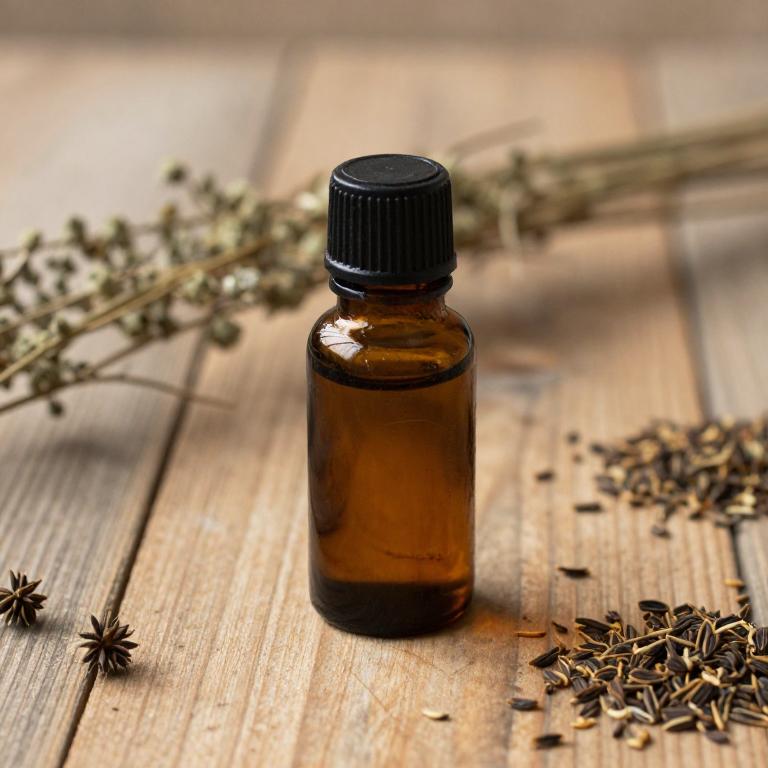10 Best Herbal Essential Oils For Rheumatoid Arthritis

Herbal essential oils have gained attention as complementary therapies for managing symptoms of rheumatoid arthritis, offering potential anti-inflammatory and analgesic properties.
Oils such as lavender, eucalyptus, and ginger are commonly used due to their ability to reduce pain and swelling when applied topically or inhaled. These oils can be diluted with a carrier oil and used in massage or diffused to promote relaxation and ease joint discomfort. While they may provide relief, they should not replace conventional medical treatments but rather be used under the guidance of a healthcare professional.
Research on their efficacy is ongoing, highlighting the need for further studies to establish their safety and effectiveness for rheumatoid arthritis patients.
Table of Contents
- 1. Turmeric (Curcuma longa)
- 2. Ginger (Zingiber officinale)
- 3. Salvia (Salvia officinalis)
- 4. Stinging nettle (Urtica dioica)
- 5. Ceylon cinnamon (Cinnamomum zeylanicum)
- 6. Echinacea (Echinacea purpurea)
- 7. Black cumin (Nigella sativa)
- 8. Chaste tree (Vitex agnus-castus)
- 9. Rosemary (Rosmarinus officinalis)
- 10. Thistle (Silybum marianum)
1. Turmeric (Curcuma longa)

Curcuma longa, commonly known as turmeric, contains curcumin, a compound that has been extensively studied for its anti-inflammatory and antioxidant properties.
Essential oils derived from Curcuma longa may offer therapeutic benefits for individuals suffering from rheumatoid arthritis by reducing joint inflammation and pain. These oils can be used topically or aromatically to support overall wellness and symptom relief. However, it is important to consult with a healthcare professional before using essential oils, as they can interact with medications or cause adverse reactions in some individuals.
While research is ongoing, preliminary studies suggest that Curcuma longa essential oils may be a valuable complementary therapy in managing rheumatoid arthritis.
2. Ginger (Zingiber officinale)

Zingiber officinale, commonly known as ginger, contains essential oils that have been studied for their potential therapeutic effects on rheumatoid arthritis.
These essential oils, rich in compounds like gingerol and shogaol, exhibit anti-inflammatory and analgesic properties that may help reduce joint pain and swelling associated with the condition. Research suggests that topical application of ginger essential oil can provide localized relief by inhibiting pro-inflammatory cytokines and oxidative stress. However, it is important to use these oils cautiously, as they may cause skin irritation or interact with certain medications.
While ginger essential oils show promise as a complementary therapy, they should not replace conventional medical treatments for rheumatoid arthritis.
3. Salvia (Salvia officinalis)

Salvia officinalis, commonly known as sage, contains essential oils that have been traditionally used for their anti-inflammatory and analgesic properties.
These essential oils, particularly rich in compounds like cineole and camphor, may help reduce joint inflammation and pain associated with rheumatoid arthritis. Preliminary studies suggest that the aromatic compounds in sage essential oil could modulate inflammatory responses and support immune regulation. However, more clinical research is needed to confirm its efficacy and safety for long-term use in managing rheumatoid arthritis symptoms.
When used as part of a holistic treatment plan, sage essential oils may offer a natural alternative or complementary therapy for individuals seeking relief from arthritis-related discomfort.
4. Stinging nettle (Urtica dioica)

Urtica dioica, commonly known as stinging nettle, has been traditionally used for its potential anti-inflammatory and analgesic properties.
Its essential oils, derived from the leaves and stems, contain compounds such as alpha-pinene and limonene, which may help reduce inflammation and pain associated with rheumatoid arthritis. While some studies suggest that stinging nettle may alleviate symptoms of arthritis, more clinical research is needed to confirm its efficacy and safety when used as an essential oil. When applying urtica dioica essential oils, it is crucial to dilute them properly with a carrier oil to avoid skin irritation.
As a complementary therapy, these oils may offer relief, but they should not replace conventional medical treatments for rheumatoid arthritis.
5. Ceylon cinnamon (Cinnamomum zeylanicum)

Cinnamomum zeylanicum, commonly known as cinnamon, produces an essential oil that has been explored for its potential therapeutic effects on rheumatoid arthritis.
The oil contains bioactive compounds such as cinnamaldehyde and eugenol, which exhibit anti-inflammatory and analgesic properties. These properties may help reduce joint inflammation and pain associated with rheumatoid arthritis. Some studies suggest that topical application of cinnamon essential oil can provide localized relief, although more research is needed to confirm its efficacy.
When used in aromatherapy or diluted for topical application, cinnamon essential oil may offer a complementary approach to managing symptoms of rheumatoid arthritis.
6. Echinacea (Echinacea purpurea)

Echinacea purpurea, commonly known as purple coneflower, is a traditional herbal remedy that has been explored for its potential benefits in managing rheumatoid arthritis (RA).
While echinacea is well-known for its immune-boosting properties, its essential oils derived from the plant may offer anti-inflammatory and antioxidant effects that could help alleviate RA symptoms. Some preliminary studies suggest that compounds in echinacea essential oils may reduce joint inflammation and pain, though more research is needed to confirm their efficacy in clinical settings. These essential oils are often used in aromatherapy and topical applications, which may provide localized relief for arthritis sufferers.
However, individuals with RA should consult healthcare professionals before using echinacea essential oils to ensure safety and avoid interactions with conventional treatments.
7. Black cumin (Nigella sativa)

Nigella sativa, commonly known as black cumin, has been traditionally used for its medicinal properties, including its potential benefits in managing rheumatoid arthritis.
The essential oils derived from Nigella sativa seeds contain bioactive compounds such as thymoquinone, which exhibit anti-inflammatory and antioxidant effects. Studies suggest that these essential oils may help reduce joint inflammation and pain associated with rheumatoid arthritis by modulating immune responses. However, more clinical research is needed to fully establish their efficacy and safety in this context.
When considering the use of Nigella sativa essential oils, it is important to consult with a healthcare professional to ensure they are used appropriately and safely.
8. Chaste tree (Vitex agnus-castus)

Vitex agnus-castus, commonly known as chaste tree, has been traditionally used for its potential therapeutic properties, including those related to hormonal balance and anti-inflammatory effects.
While it is more widely recognized for its role in herbal medicine for conditions like premenstrual syndrome and menopause, some studies suggest that its essential oils may possess anti-inflammatory and analgesic properties that could be beneficial for managing symptoms of rheumatoid arthritis. The essential oils derived from Vitex agnus-castus contain compounds such as linalool and lavandulol, which have been shown to exhibit anti-inflammatory and antioxidant activities in preliminary research. However, it is important to note that there is currently limited clinical evidence supporting the use of Vitex agnus-castus essential oils as a primary treatment for rheumatoid arthritis, and more rigorous studies are needed to confirm its efficacy and safety.
As with any complementary therapy, individuals with rheumatoid arthritis should consult with a healthcare provider before incorporating Vitex agnus-castus essential oils into their treatment regimen.
9. Rosemary (Rosmarinus officinalis)

Rosmarinus officinalis, commonly known as rosemary, produces essential oils that have been studied for their potential benefits in managing rheumatoid arthritis.
The primary compounds in rosemary essential oil, such as 1,8-cineole and camphor, exhibit anti-inflammatory and analgesic properties that may help reduce joint pain and swelling associated with the condition. These oils can be used through aromatherapy, topical application, or diffusion to promote relaxation and ease discomfort. Research suggests that rosemary essential oil may support the body's natural healing processes and reduce oxidative stress, which is often elevated in rheumatoid arthritis.
However, it is important to consult a healthcare professional before using rosemary essential oils, as they may interact with certain medications or cause skin irritation in some individuals.
10. Thistle (Silybum marianum)

Silybum marianum, commonly known as milk thistle, is a herbal plant that contains essential oils with potential anti-inflammatory properties.
These essential oils are derived from the seeds and leaves of the plant and are believed to support joint health by reducing inflammation associated with rheumatoid arthritis. Preliminary research suggests that the bioactive compounds in Silybum marianum essential oils may help modulate the immune response and decrease oxidative stress, which are key factors in the progression of rheumatoid arthritis. While more clinical studies are needed to confirm its efficacy, some individuals use these oils as a complementary therapy alongside conventional treatments.
It is important to consult a healthcare professional before incorporating Silybum marianum essential oils into a treatment regimen for rheumatoid arthritis.